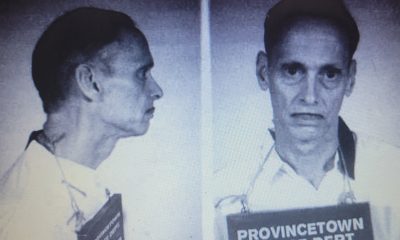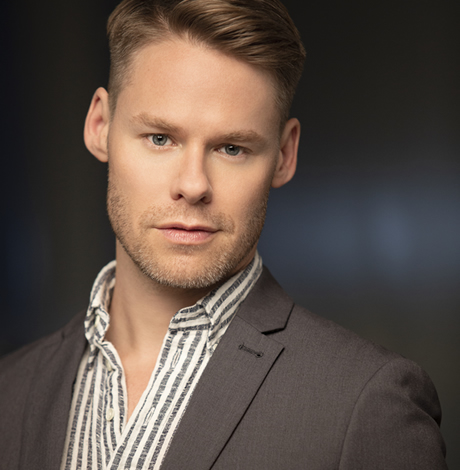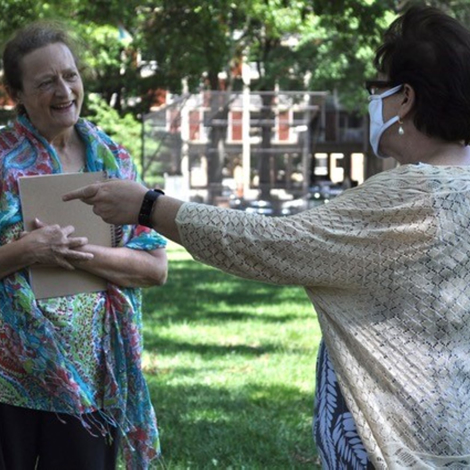Theater
Kathleen Turner on her new cabaret, gay icon status, Hollywood career and more
Busy actress dabbles in storytelling, opera, directing plays, keeping physically active
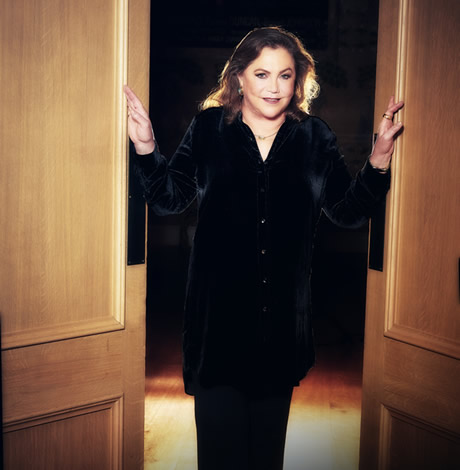
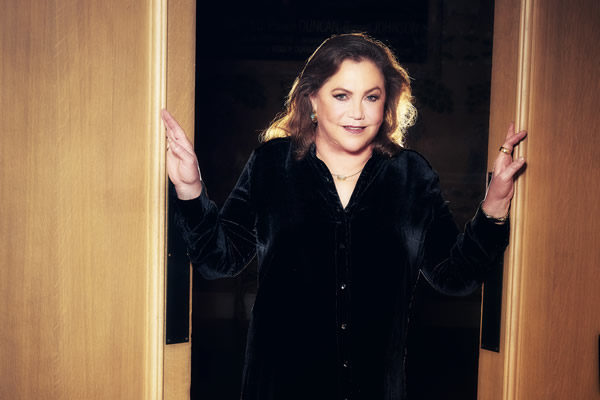
2019 Arena Stage Annual Gala
Tuesday, May 21
Arena Stage
1101 6th St., S.W.
202-488-3300
Not long after her movie star-making turn as femme fatale Matty Walker in ’80s thriller “Body Heat,” Kathleen Turner appeared at Arena Stage. She played Tatiana and Hippolyta in Shakespeare’s “A Midsummer Night’s Dream,” kicking off a long and satisfying relationship between the husky-voiced actor and the waterfront theater.
Over the years, Turner has shone memorably in Arena productions like “Red Hot Patriot,” “Mother Courage and Her Children” and “The Year of Magical Thinking.” And now she’s headlining Arena’s annual gala with excerpts from her first cabaret, “Finding My Voice,” which debuted last year (gala proceeds go to Arena’s artistic and educational programs).
Turner fulfilled her movie promise with “Prizzi’s Honor” and “The War of the Roses.” She received an Oscar nod for “Peggy Sue Got Married,” and Tony Award nominations “Cat on a Hot Tin Roof” and “Who’s Afraid of Virginia Woolf.” But there have been setbacks too, including chronic illness and addiction issues.
A big-name actor who has never lived in Hollywood, Turner isn’t exclusively one thing. She’s an activist whose ire has recently been reignited, a teacher and a self-described “citizen of the world.”
Via phone from her Manhattan apartment, she talks about these things and more.
WASHINGTON BLADE: Kathleen Turner in cabaret. Makes perfect sense. Was this long in the making?
KATHLEEN TURNER: I first did it in London’s West End, and then brought it to Café Carlisle where they asked me to cut it down. It’s not about my singing. It’s about my storytelling. I’m still tweaking it. Actually, it wasn’t long in the making. And my decision to do it had a lot to do with Molly Smith [Arena Stage’s Artistic Director]. You’ll understand more when you come to the Gala and see me do it.
BLADE: You’re an activist for, among other things, reproductive rights, and have volunteered with Planned Parenthood for decades. Any thoughts on the current assault on the organization?
TURNER: I was just shooting in Atlanta where the expletive governor (editor’s note: Turner’s exact words) signed the heartbeat bill. At six weeks a woman doesn’t even know if she’s pregnant or not. It’s obscene. So, I’m setting up a sit down with Planned Parenthood’s new president Leanna Wen to clarify what more I can do to help. I travel to affiliates and make myself available to speak, but I think all of us need to do more.
BLADE: “Red Hot Patriot,” your one-woman show about the late Molly Ivins (the brilliant liberal newspaper columnist) was such a good time, but beneath the humor was there some political rage?
TURNER: Absolutely, but that’s nothing new to me. Molly was and is very close to my heart. I adored her sense of humor and agreed with her political positions. We initially mounted “Red Hot Patriot” in Philly. Molly was a Texan, so for the very first performance we had a planeload of Molly’s fellow Texans from the ACLU, Texas Observer people, and her brother. Molly was a big-boned woman, but her brother was really big. He wrapped his arms around me and thanked me for keeping Molly alive. That was one of the most extraordinary things I ever heard pertaining to my work.
BLADE: You brought “Who’s Afraid of Virginia Woolf” to the Kennedy Center. You were spectacular as Martha.
TURNER: I was thrilled with the production and what we achieved.
BLADE: Is it hard to move from screen to stage?
TURNER: For me it’s always been theater. To my mind, film happened to me. And it was fun and I enjoyed the work tremendously. But with films, I never had the power or liberty and freedom that I have on stage.
BLADE: Is #metoo your Hollywood experience?
TURNER: I was fortunate. I became a star very quickly and didn’t have to deal with those kinds of predatory men. Today, I’m aligned with the Time’s Up movement. It’s about creating legal funds for women to fight back against harassment. That makes sense to me; my nature is to do something about the problem.
BLADE: Now that you’re in your 60s, are you exploring new things besides cabaret?
TURNER: Oh yeah. Not long ago I played a non-singing role in Donizetti’s comic opera “The Daughter of the Regiment.” I was the Duchess of Krakenthorp. The character is so selfish and absurd, a caricature of a comic villainess. It was great fun. To be surrounded by those voices is extraordinary. From my dressing room, I could hear the mezzo Stephanie warming up on one side, and the soprano, pretty Yolanda, on the other. And the house seats 3,800. It’s astounding. Another world altogether. And soon, I’ll be directing a new playwright whose protagonists are a woman in her 70s and another in her late 60s. You don’t see that a lot.
BLADE: And how is the R.A. (rheumatoid arthritis)?
TURNER: Oh, you know, it’s an ongoing thing. Part of treatment is to keep moving. I find Pilates helpful. So I do that three times a week. And when spring comes, I bring my bicycle out of storage and ride along Hudson River Park, but never in the street.
BLADE: I’ve heard you praise the work of your great friend Cherry Jones. What other working actors do you like?
TURNER: I don’t know a lot of the young ones because I don’t
BLADE: I’m pretty certain that my favorite of your films is “Peggy Sue Got Married.”
TURNER: It’s magical, isn’t it? That’s thanks to its director, Coppola. The dressing table scene is everything. The camera pulls back and I have a double echoing my movements. You can see the back and front of me at the same time and you accept it. Once you accept that you’re ready to go on the journey with her.
BLADE: A surefire cure for the blues is your obscene phone scene from John Waters’ movie “Serial Mom.”
TURNER: (Laughs.) I’m still asked to say those lines. I refuse.
BLADE: Is that what started your gay following?
TURNER: Sure, it has a lot to do with “Serial Mom.” But recently, my daughter sent me a clip from “RuPaul’s Drag Race.” A contestant being attacked by the others bellows “In the name of Kathleen Turner, what is going on here?” I liked that. The references keep coming.
BLADE: What keeps you coming back to Arena?
TURNER: That’s easy. It’s the quality of the people there. In 20 years, Molly [Smith] has made Arena into a full plant. When she directed me in “Mother Courage,” it was thrilling, and even when she’s not directing me, she remains deeply involved my work while I’m there. Also, the production people are top notch. And I like Washington. And Arena gets me an apartment over on 6th Street, I can walk everywhere. Lots of good restaurants and things to do. It’s always a nice time.
Theater
‘Bad Books’ a timely look at censorship in local library
Influencer vs. conservative parent in Round House production

‘Bad Books’
Through May 4
Round House Theatre
4545 East-West Highway
Bethesda, Md.
Tickets start at $43
Roundhousetheatre.org
While a library might seem an unlikely place for a heated contretemps, it’s exactly the spot where adults go when they’re itching to battle out what books minors might be allowed to read.
In Sharyn Rothstein’s “Bad Books,” two women, The Mother (out actor Holly Twyford) and The Librarian (Kate Eastwood Norris), swiftly become mired in a quarrel that comes with some weighty repercussions.
The Mother is a popular conservative influencer on a mission. She’s furious that the local library has overstepped its bounds and she blames The Librarian, a woman who adheres to the “it takes a village” method of child rearing and is dedicated to the young people who approach her reference desk.
There’s some background. It seems The Librarian who dresses young (tight jackets and Doc Martens) and curses a blue streak, forged a friendship with Jeremy, a teenage library regular.
While the details are a bit hazy, it seems the troubled Jeremy confided in The Librarian regarding some personal issues. In return, she suggested a helpful book – Boob Juice.
Unsurprisingly, based solely on its title, the book has thrown The Mother into a pique of outrage. After finding Boob Juice in her son’s bedroom, she made a beeline to the library; and not incidentally, The Mother hasn’t read the recommended work and has no plans to do so.
Set in a suburb with lax gun laws, the story explores facets of division and conciliation. The Mother insists she isn’t so much about banning books as she is keeping some books away from young people until they’ve obtained parental approval.
“Bad Books” is performed in the round. Built on a rotating stage, Meghan Raham’s set is simple, pleasingly serviceable, and easily transforms from the library into a small corporate office, and later the assembly room of a church. Overhead floats a circular glass shelf filled with a cache of banned books. Things like a rolling book cart and a goldfish bowl add some flavor to the different locations.
The Mother wasn’t always a popular conservative warrior with an enthusiastic horde of followers.
Her past includes penning a book that later filled her with guilt and regret. She refers to that early questionable literary accomplishment as her bad book. And while over the years, she has persevered to find and destroy each and every printed copy, she hasn’t entirely succeeded.
Norris plays three women who figure meaningfully into the arc of Twyford’s mother character. In addition to The Librarian, Norris is The Manager, a broadly played piece of comic relief, and The Editor, a warm woman who reveals things about Jeremy that his own mother never knew.
Smartly staged by Ryan Rilette, the production is part of a National New Play Network Rolling World Premiere. While Rothstein’s script offers two strong roles (skillfully performed by celebrated actors Twyford and Norris), its ending feels too neatly resolved.
In the past, Twyford and Norris have successfully joined forces for numerous DMV productions including Studio Theatre’s production of David Auburn’s two-hander “Summer, 1976,” the story of a longtime and unlikely friendship between two women who meet as young mothers during the Bicentennial summer.
Though different, both The Librarian and The Mother share a strong and ultimately hopeful relationship with words.
There’s a quote from E.B. White’s classic “Charlotte’s Web” that pops up a couple of times in the briskly paced 80-minute play. Charlotte, the wise spider, says, “with just the right words you can change the world.”

‘Uncle Vanya’
Through April 20
Shakespeare Theatre Company
Harman Hall
610 F St., N.W.
Shakespearetheatre.org
Shakespeare Theatre Company’s “Uncle Vanya” freshly rendered by director Simon Godwin and starring Hugh Bonneville in the title role, puts a pleasing twist on Chekhov’s tragicomic classic.
As disheveled, disheartened, and overworked Vanya, Bonneville is terrific. Though very different from the actor’s fame making role as Downton Abbey’s Lord Grantham, a proud, fastidiously turned-out aristocrat who presides over a manicured country estate peopled by a large staff, his Vanya is equally compelling
For “Uncle Vanya,” Chekhov imagines a house on a ragged estate in the Russian forest whose inhabitants display varying degrees of discontent brought on by the realization that they’re leading wasted lives. Middle-aged Vanya’s dissatisfaction and disappointment have been tempered by years of hard work. But all of that is about to be challenged.
With his plain and steadfast niece Sonya (Melanie Field), Vanya keeps the place going. And while barely putting aside a kopek for himself, he’s ensured that proceeds have gone to Sonya’s father Alexandre, a querulous academic (Tom Nelis), and his alluring, much younger second wife Yelena (Ito Aghayere) who live in the city.
When called to retire, the self-important professor and his wife economize by joining the family in the country. Overcome by the intense boredom brought on by provincial isolation, they’re not happy. Turns out, life in the sticks isn’t for them.
At the same time, the urban couple’s presence generates quite an effect on the rural household, changing the mood from one of regular work to idleness. What’s more, Vanya and family friend Mikhaíl Ástrov (John Benjamin Hickey), an unusually eco-aware, country doctor, are both bewitched by Yelena.
Meanwhile, young Sonya, who’s long carried an unrequited torch for Ástrov grows increasingly smitten. And while Yelena, who’s bored with her aging husband, expresses teasing tenderness with Vanya, she feels something more serious for Ástrov. It’s a whole lot for one house.
Superbly staged by Simon Godwin, STC’s artistic director, and performed by a topnotch cast, the very human production begins on an unfinished stage cluttered with costume racks and assorted props, all assembled by crew in black and actors in street clothes. We first see them arranging pillows and rugs for an outside scene. Throughout the play, the actors continue to assist with set changes accompanied by an underscore of melancholic cello strings.
With each subsequent scene, the work moves deeper into Chekhov’s late 19th century Russian world from the kitchen to the drawing room thanks in part to scenic designer Robert Brill’s subtle sets and Susan Hilferty and Heather C. Freedman’s period costumes as well as Jen Schriever’s emotive lighting design.
In moments of stillness, the set with its painterly muted tones and spare furnishings is a domestic interior from a moment in time. It’s really something.
Adapted by contemporary Irish playwright Conor McPherson, the work is infused with mordant wit, ribald comedy, and sadness. Like McPherson’s 2006 play “The Seafarer” in which the action unfolds among family, friends and others in a modest house filled with confrontation, laughter, resentment, and sadness. All on brand.
For much of “Uncle Vanya,” McPherson’s script leans into humor, funny slights, the professor’s pretentions, and Vanya’s delicious snarky asides; but after the interval, the play’s stakes become perilously heightened ready to explode with resentment and feelings of wasted potential, particularly frustrations expressed by Vanya and his intelligent but unfulfilled mother (Sharon Lockwood).
When it appears that mismatched couple Alexandre and Yelena are poised to depart, the house is struck with a sense of both relief and gloom.
Not everyone is disturbed. In fact, the family’s old nanny Nana (Nancy Robinette), and Waffles (Craig Wallace), a former landowner and now lodger on the estate, are elated. Both are eager to return to the pre-professor schedule of an early breakfast and midday lunch, and menus featuring simpler fare. They long for the return of the humble Russian noodle.
“Uncle Vanya”melds cynicism and hope. Like life, it’s a grasp at fulfillment.
Theater
Out actor Ángel Lozado on his new role in ‘In the Heights’
Lin-Manuel Miranda’s musical at Signature Theatre through May 4

‘In the Heights’
Through May 4
Signature Theatre
4200 Campbell Ave., Arlington, VA
Tickets start at $40
Sigtheatre.org
Before his smash hit “Hamilton” transformed Broadway, Lin-Manuel Miranda wrote “In the Heights,” a seminal musical set in an upper Manhattan barrio. Infused with hip-hop, rap, and pop ballads, the romance/dramedy unfolds over a lively few days in the well-known Latin neighborhood, Washington Heights.
Now playing at Signature Theatre in Arlington, “In the Heights” features handsome out actor Ángel Lozado as the show’s protagonist Usnavi de la Vega (named for a U.S. Navy vessel), a young Dominican American bodega owner who figures warmly in the center of the hood and the action.
A durable part that Lozado has wanted to play for some time, it’s proved the perfect vehicle to showcase his talents in a story that rings true to his heart.
WASHINGTON BLADE: Timing is very important to you.
ÁNGEL LOZADO: During rehearsal at Signature, our director James Vásquez said “In the Heights” finds you at a time when you need it. And that definitely resonates with me.
In the past I was up for Usnavi several times and then I was standby in the part for two weeks at the Muny in St. Louis but never called to go on.
And then, I lost my grandmother in January and was cast at Signature. In the show, the neighborhood loses their abuela [played by Rayanne Gonzales], I feel like I was meant to play the part at this moment. I’m a firm believer in the timing of it all.
BLADE: You’ve trained vocally at Florida State University, debuted on Broadway in “Bad Cinderella,” sang in “Jesus Christ Superstar Live (NBC),” and sung in many other musicals, but I’m guessing this is different?
LOZADO: Rapping is the most challenging part of the role. I’m trained in musical theater. I can sustain eight shows a week, but this is different. Rapping is more taxing. It’s challenging. With rap it’s clipped and the throat gets tighter.
BLADE: Like so much of Manhattan,Washington Heightshas changed a lot since 2008 when the show is set.
LOZADO: I currently live in Washington Heights and it’s very gentrified. Rents are high. I don’t think it was their intention to do a period piece but “In the Heights” is a period piece.
BLADE: And you grew up in Orlando, Fla., where before discovering theater, you were heavily into baseball.
LOZADO: I’m Puerto Rican, and baseball is a big part of our culture. My parents put me on a team at five, and I played first base through mid-high school. That was going to be a career. Went from one crazy career to another. When I got to high school, I was struggling with my queerness being in the sports world — struggled with my identity and the space I was in, I lost my love for baseball.
BLADE: How did you find your way to theater?
LOZADO: Through high school choir. It was a hard switch, but one that I couldn’t resist.
BLADE: You’ve been openly queer in the business. Has that ever been a problem?
LOZADO: I don’t know if it’s problematic or not. As actors, we don’t get behind the closed doors of casting. I do know that I’ve gotten to play lots of roles regionally that are straight men and that hasn’t been a problem.
Then again, I’ve cosplayed as a straight man most of my life. It makes me laugh when people see me offstage, they’re like, “Wow, you were really convincing as straight on stage.” I’ll take that compliment because that means I’m acting.
BLADE: Tell me about other roles you’ve played
LOZADO: Latin roles: Usnavi, Bernardo in “West Side Story,” Emilio Estefan in “On Your Feet!” and Che in “Evita.”And while I was thrilled to play those great parts, at the same time, I had friends getting auditions that weren’t specific to them being white, Black, or whatever. I worked with people who are more seasoned in the industry who had done 12 productions of “Evita.” I didn’t want to do that. I love representing my culture but I’d also like to do parts that have nothing to do with that. Dream roles include Sondheim’s “Sunday in the Park with George.”
BLADE: And how about a new work? Would you like creating a role on Broadway?
LOZADO: Oh yes, that’s the big dream.
BLADE: Do you think “In the Heights” might appeal to both Latin and queer audiences?
LOSADO: Yes.To see a people show themselves in a way that’s different from the stereotypes, telling our story in our own way, and not allowing the headlines define who we are, but to stand up in our joy.
“In the Heights” holds up the Latin community and, for me, that’s a parallel to the queer community, celebrating itself, especially in the upcoming time of WorldPride DC 2025 events (May 23-June 8).
-

 State Department5 days ago
State Department5 days agoHIV/AIDS activists protest at State Department, demand full PEPFAR funding restoration
-

 District of Columbia5 days ago
District of Columbia5 days agoCapital Pride wins $900,000 D.C. grant to support WorldPride
-

 Obituary4 days ago
Obituary4 days agoLocal attorney, LGBTQ rights advocate Dale Sanders dies at 75
-

 U.S. Federal Courts3 days ago
U.S. Federal Courts3 days agoFederal judge blocks Trump passport executive order

